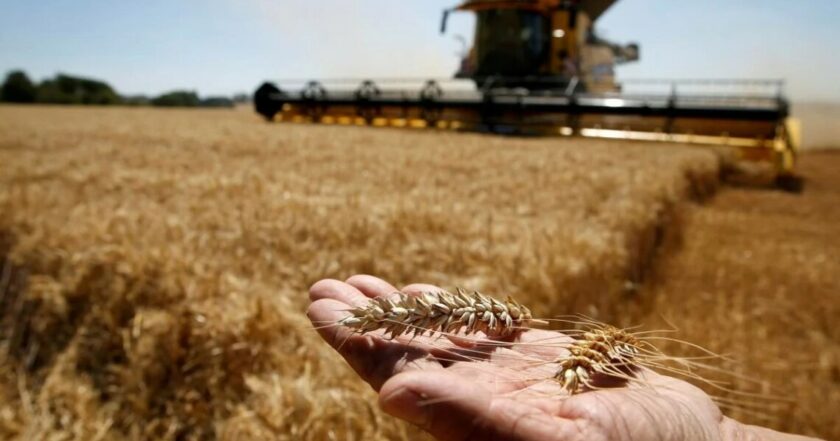Kyiv School of Economics: russia stole $600 mln worth of grain and oil from Ukraine

The estimated total value of grain and oil crops stolen by the russian federation in Ukraine is more than 613 million US dollars.
Such data was voiced by the expert of the KSE Institute Center for Food and Land Use Research, Roman Neyter, during the discussion "100 days past the RF's invasion: current state and outlook on food security and agricultural markets around the globe."
Currently, the total amount of damages and losses due to the war in agriculture, according to KSE Agrocenter estimates, is 27.6 billion dollars, of which the largest category is losses due to unharvested winter crops (1.4 billion dollars) and destroyed equipment (926 million dollars).
The expert emphasized that granaries with a total capacity of 4 million tons have been lost (damaged or completely destroyed). Another part of the elevators is located in the occupied regions, and there is no full access. So one of the problems Ukrainian farmers face or will face in a matter of the upcoming weeks-months is how to store the harvest.
"We are also seeing more and more evidence of russia stealing our grain from occupied regions in Ukraine: from Kherson oblast, from Zaporizhzhia oblast. And the estimated cost of this stolen grain and oil is exceeding $600 million," said Roman Neyter.
Before russia's invasion, domestic prices on the Ukrainian market were perfectly correlated with world prices, the KSE says. Right now, because of the naval blockade imposed by the russians, Ukraine has faced a substantial disruption in our supply chains. While after the russia's invasion the world prices for grain skyrocketed – domestic prices here in Ukraine went down.
As of early June, the weighted average decrease in domestic prices for wheat, barley, maize, and oil fell by 33,7% compared to the pre-invasion level, leading to $11.6 billion in losses. "In 2022, we expect a certain decline in production and a significant decrease in the amount of grain exports. This will lead to the need to store 45% of the wheat crop, 50% of the barley crop, and 30% of the maize crop in the long term," the report adds.
Indirect losses in agriculture due to a decrease in production, blockade of ports, and increase in the price of production factors are estimated at 23.3 billion dollars.
After three months of russia's full-scale war against Ukraine, losses in the agricultural sector of Ukraine reached 4.3 billion US dollars, which is almost 15% of the country's capital. While these damages reflect the total or partial destruction of tangible assets, indirect losses consider the foregone income from the reduced quantity of goods produced and the additional finances producers are forced to spend because of the war. Foregone income is the difference between actual income and income that agricultural producers would have received had it not been for russia's invasion of Ukraine.
"Calculations of indirect losses help to understand the scale of the industry's decline and the need for a full recovery of production. A significant portion of the lost income would be used to cover the costs of the next sowing campaign and the purchase of fodder for livestock. Without partial compensation for losses, farmers in the regions most affected by the war will not be able to resume production," Roman Neyter comments on the calculations.
Ukraine risks losing up to 10% of its GDP if grain exports are not restored to the level of 2021.
Earlier, Rubryka reported that the russians admitted they extracted the Ukrainian grain from temporarily occupied regions.
On July 22, Ukraine signed an agreement on grain export with Turkey and the UN, unblocking three ports in the Black Sea: Odesa, Chornomorsk, and Yuzhne. Under the auspices of Turkey and the UN, the grain is to be exported safely. The next day, russia launched a missile strike on Odesa Port.



















































